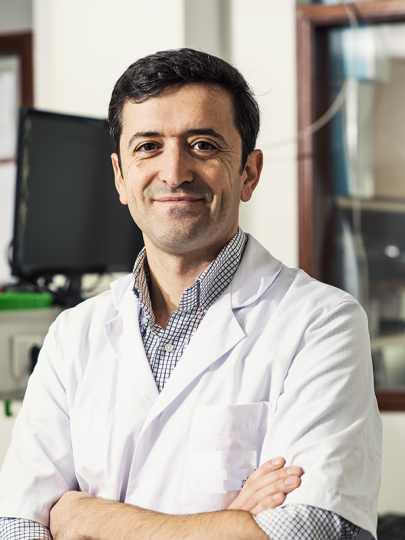David JacobiL'unité de recherche de l'institut du thorax - CNRS Inserm / Université de Nantes
Mes recherches
As a medical doctor, I have cared for patients with obesity-related metabolic diseases. This has fueled my deep interest for basic research on the molecular mechanisms for metabolic diseases. This interest cannot be more illustrated by the fact that I transiently interrupted my medical carrier and left France in 2011 for a post-doctoral fellowship at the Department of Genetics and Complex Diseases, Harvard School of Public Health, Boston, USA. Under the supervision of Pr Chih-Hao Lee, the pioneering achievements of my post-doctoral work showing the existence of anticipatory mitochondrial daily rhythms and their role in metabolic homeostasis were decisive to become an independent Principal Investigator. My “bench and bedside” training puts me in a unique position to conduct biomedical research with clinical relevance and to address scientific questions directly relevant to the current challenges in public health. My goal is to bridge the fundamental scientific basis of circadian and mitochondrial biology with clinically relevant outcomes for metabolic diseases. Now a laureate of the INSERM ATIP-Avenir program 2017, I created a research group (Team V of the research unit of the Thorax Institute) studying the molecular mechanisms of metabolic diseases in the context of overnutrition. I joined the Thorax Institute in Nantes, a leading institution aiming at developing top quality research, care and training in metabolic, heart, and nutrition-related diseases.
Mon projet ATIP-Avenir
MitoChondrial dIurnal Rhythms in metaboliC diseAses (MitoCIRCA)
Over 50% of adults in Europe are overweight and therefore at risk of developing metabolic diseases such as type 2 diabetes or non-alcoholic steatohepatitis. We see changes in the rates of food intake and sleep/wake patterns that contribute to overweight and metabolic complications. Almost 20% of the working population in Europe work in shifts (3.5 million workers in France). However, the mechanisms linking irregular lifestyles to metabolic complications are poorly understood.
We therefore use in vitro and in vivo approaches to study hepatocyte metabolism. Genetic, pharmacological, and metabolic approaches are used to delineate the molecular mechanisms by which overnutrition and loss of circadian synchrony disturbs mitochondrial rhythms. Then, we establish how these alterations trigger metabolic diseases.
The future of chronobiology research is translation to clinical medicine. Our project is a part of this endeavor, as it provides the preclinical proof of concept for moving scientific basis to clinical research on metabolic diseases. We take advantage of the unique environment of l'institut du thorax to demonstrate the relevance of our results in clinical populations.
